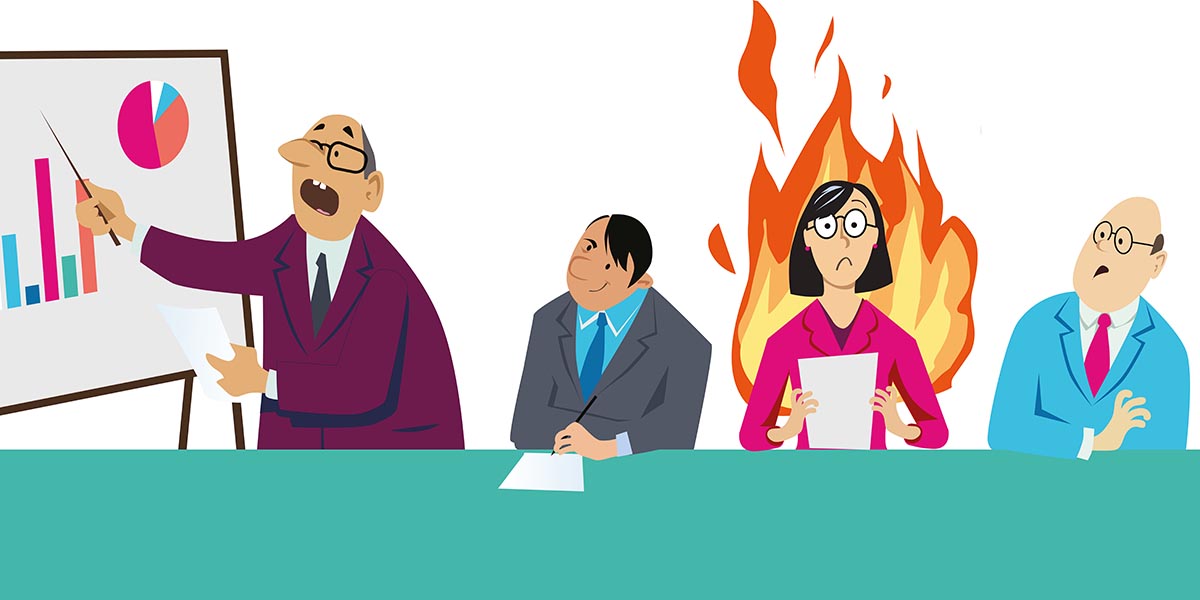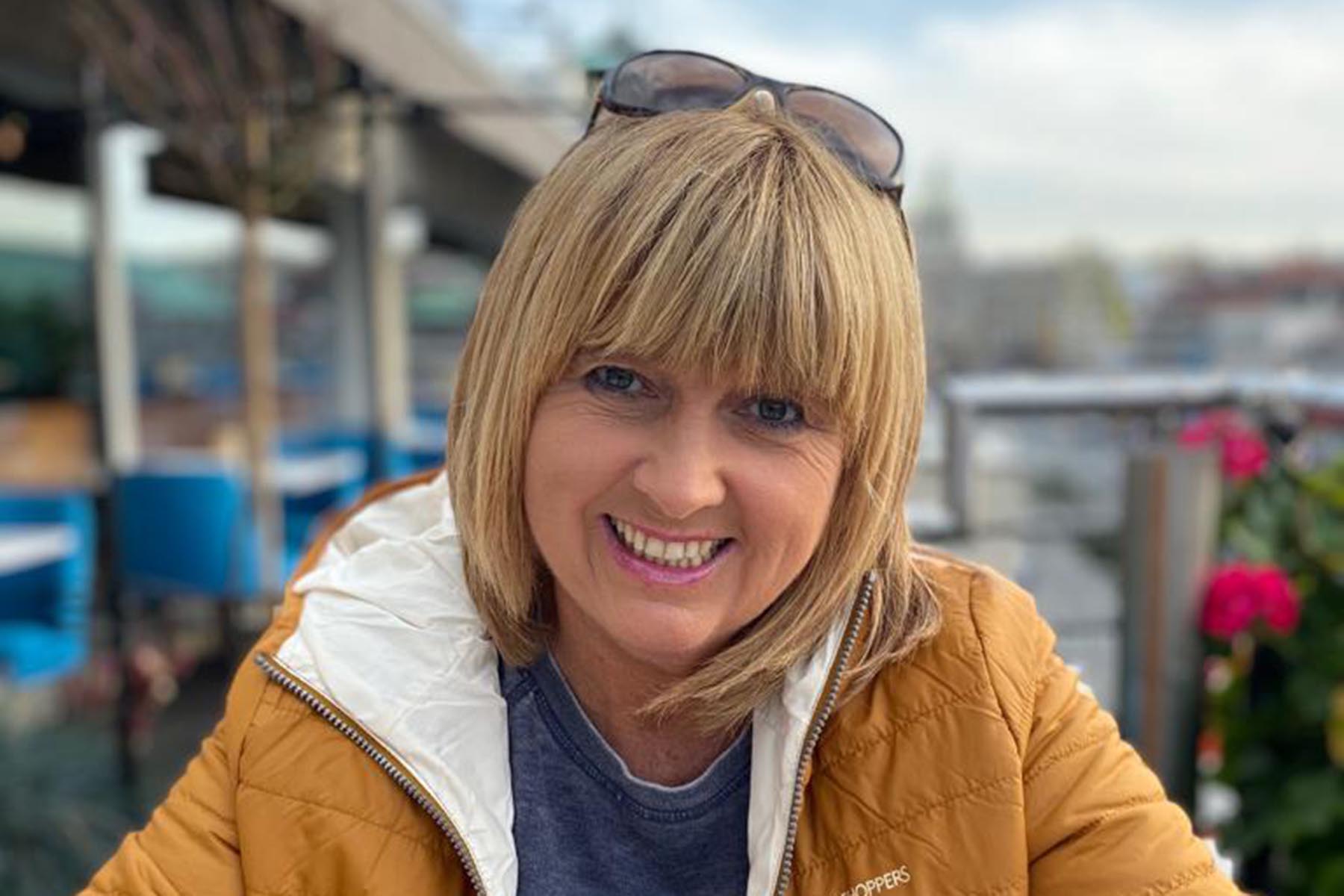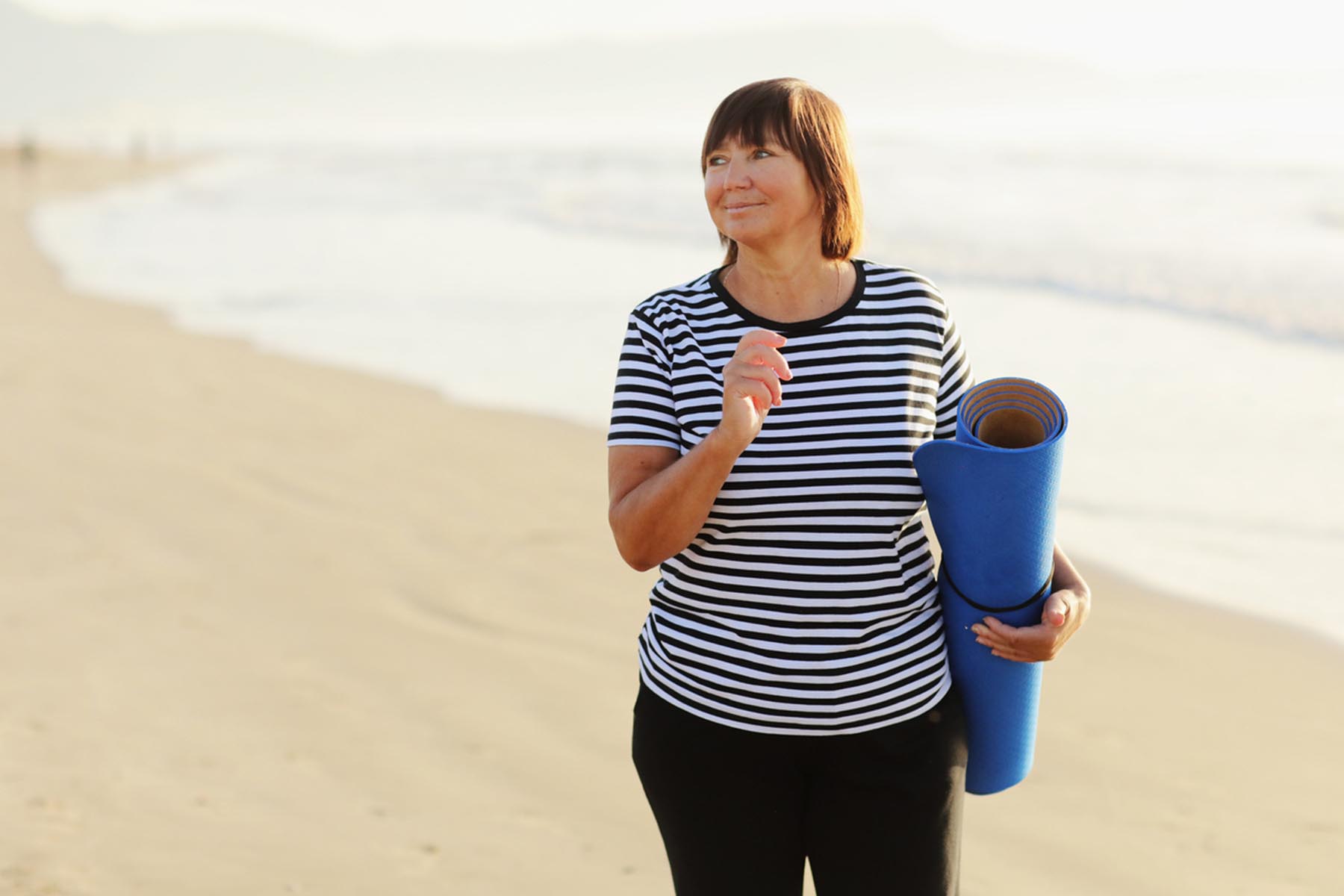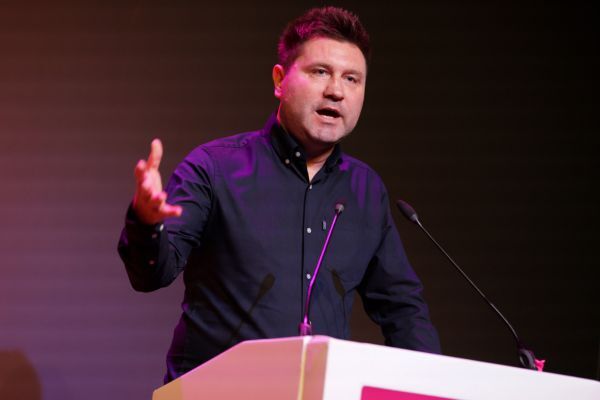How to help your colleagues – and clients – through the menopause
Menopause is a topic too often brushed under the carpet, leaving talented staff suffering and businesses exposed to risk. It’s time to break the taboo and embrace hot flushes – plus holiday tips for clients in the menopause years

Have you heard the words “The Change” whispered in hushed tones? Accompanied by raised eyebrows or furtive glances perhaps?
Despite 50% of the population experiencing the menopause, it is still one of the greatest taboos in our society. Menopausal women have become the fastest growing demographic in the workplace and yet menopause often remains a topic shrouded in mystique and embarrassment.
And it’s not just cisgender women we need to talk about, transgender people can also experience symptoms of the menopause due to hormone fluctuations.
Rachel Suff, senior policy adviser (employee relations) at the Chartered Institute of Personnel and Development (CIPD), says: “Supporting women through menopause transition can be pivotal in ensuring they remain in work and thrive at a stage when most are at the peak of their skills and experience.
“Organisations should support people with menopausal symptoms in the same way they would with any other long-term and fluctuating health condition.”
There are plenty of impacts on business owners too. Julie Dennis runs the consultancy Menopause in the Workplace. She has seen tangible benefits for organisations taking menopause seriously including improved productivity, reduced absence and boosted reputation as an employer focused on gender parity.
Failure to support menopausal women can also pose serious risk to businesses as employment tribunals citing menopause are on the rise – Menopause Experts notes an increase of 44% year-on-year in 2021.
Flash stats
44%
of menopausal women say menopause has impacted their ability at work
14%
have reduced working hours due to menopause
10%
have quit their job due to menopause
Source: Menopause in the Workplace
PRACTICAL INSPIRATION
So it pays to ensure you have menopause on the agenda, but what should you look for and how can you make a difference?
Women’s health expert Emma Bardwell suggests symptoms to look out for: “Hot flushes, night sweats and mood swings are common. Less discussed are the psychological and cognitive symptoms like anxiety, loss of confidence, brain fog, lack of spatial awareness, memory issues.”
Armed with some knowledge, it’s time to consider how you can improve the experience of menopausal women in your workplace.
Travel Talks Menopause (TTM), a platform co-founded by Holiday Extras’ national retail manager Lindsay Garvey-Jones, is a great starting point. It aims to support individuals and businesses in the travel industry in relation to menopause and suggests plenty of ways to make a difference.
Garvey-Jones also provides practical inspiration with positive changes that Holiday Extras has implemented. These include: sessions with external professionals; cool off spaces; adapted workstations with fans or ergonomic chairs; free sanitary products in bathrooms; bathroom door posters with QR codes to evidence-based external sites; and men-only sessions.
Signing the Menopause Workplace Pledge has been another important step for Holiday Extras as well as for other travel companies including East of England Co-op, Travel Counsellors and Attraction World.
East of England Co-op’s colleague engagement manager Laura Stiff says: “Our focus is on taking steps that help to create a culture of open and honest dialogue to help identify personalised support.”
Travel Counsellors’ chief people officer Victoria Wilson explains that they have installed a raft of measures including a confidential survey to help understand what support staff wanted, providing a library of menopause-related resources and plans to create a menopause network this year.
Showing support
Travel Counsellor Nikki Swan says:
"I had a terrible time at the onset of menopause. I was due to go on a ski holiday with friends and, as it got closer, I was a nervous wreck. In the end, I didn’t go. I couldn’t do simple things like going to the Post Office. People think menopause is all night sweats and hot flushes, but anxiety is a huge thing too.
More than a year later I put a message on the TC Facebook page asking if anyone wanted to join a menopause group – and I had a great response.
I set up the TC Many Pause Facebook group in October 2021 and now there are 256 members. No one is afraid to ask questions as someone else will have had the same experience. We might encourage someone to get help from the doctor, share experiences or simply provide support to others also awake at 3am!"
IMPORTANCE OF MALE ALLIES
One of the bigger obstacles when it comes to menopause, however, can be helping women realise and accept that they may be affected by it.
Andrea Stafford, Scenic Cruises’ director of trade sales UK, explains that the onset of menopause aged 47 left her feeling “a bit invisible”.
“I could see younger female colleagues around me who seemed to be sharper and doing a better job. I couldn’t understand why,” she says.
A conversation with a supportive boss and a positive experience with a menopause nurse helped Stafford bounce back with the help of HRT (hormone replacement therapy).
Now she is focused on ensuring other women get the support they need and holds a wellbeing call every Friday at 4pm with a couple of female colleagues of a similar age.
Male allies can be key to helping break down taboos too. Rob Fielding, general manager of tour operator Discover Adventure, says: “We’re a team of nine, with the owner and myself the only males, so it’s an important topic especially as the majority of our female staff are in the age range for perimenopause and/or menopause.”
He advises: “Don’t let your own embarrassment prevent you from talking to your team about menopause. Just knowing that the company is aware and ready to support female staff can be enough to take some of the worry away.”
So let’s abolish those hushed tones, grab menopause by the hormonal horns and make sure every employee feels able to ask for help. It might just be the tide change that transforms businesses as well as lives.
Travelling in the menopause years
Menopause can not only be detrimental to the mood and health of travel industry employees, it can also change what your customers want from their holiday.
Eloise Barker from Responsible Travel shares these tips for travel during the menopause:
“I literally used to travel the world on my own. I didn’t have a problem with anything. Then all of a sudden it became major thing just to go to the supermarket.”
Julie Slade is founder and director of our partner The Ultimate Retreat Company. The menopause has made her rethink travel – both for herself and her guests. Empathy is key, she says. They have always tailored holidays to their travellers’ needs with a health questionnaire – now they ask directly about menopause symptoms.
“Can you imagine what it must be like – even if you want to travel, even if you desperately need a break from real life back home? You want to do it, but because of your anxiety levels everything in you is saying, ‘Don’t do it!’”
Julie is not alone. For those who love to travel, reflecting on their menopause experience can be sobering. One of the major – and, for a long time, under-discussed – symptoms is anxiety. It can have a destructive effect on your appetite to discover the world, even if you used to pack a rucksack without a second thought.
Whilst we don’t want the menopause to put the brakes on anyone’s travel plans, it’s important to recognise that it can have a profound effect, no matter how seasoned the traveller.
What kind of holidays suit someone going through the menopause?
The answer is – all of them. Because, of course, people experience this time very differently. Not everyone can take time out for a menopause retreat, and not everyone is up for a long-haul flight. But below are some ideas based on common concerns.
Activity holidays
“A nature tour in the great outdoors will do you good!” says Chantel Kyriakopoulou-Beuvink, founder of wildlife tour specialists Natural Greece. “It’s a boost for your vitamin D levels. Immersion in nature and exercise are likely going to improve your mood and diminish those feelings of anxiety.”
You can’t get more immersed in nature than on Responsible Travel's dolphin-conservation holiday in Greece, which is run by Chantel through Natural Greece.
People concerned about hot flushes might want to consider the time of year they go, or skip hotter destinations. “I live in a hot country and live in a permanent puddle,” says Julie, when we talk about hot flushes. She recommends wearing bamboo clothing to help keep cool.
Wellness holidays
“I went on my first yoga retreat a month ago,” says Alison Brookes Day, account manager at Responsible Travel. “My friend recommended it. She was through the menopause and she was championing HRT to me too. I was sceptical, but it was an amazing journey – I hate that word, but it was! I think that style of holiday is so valuable if you have the time.”
Fitness holidays
“If you’re going to choose a fitness holiday, choose the right kind of exercise and the right age group,” says Julie. “Ask what the sessions are like, ask how old the demographic is. If a fitness business is geared to 25-year-olds, that’s not suitable for someone going through the menopause. You need a team around you that understands you – and other guests of your age group.”
Well-planned family holidays
Not everyone can down tools and take themselves off on a solo retreat to relieve their stress. “Young children add another dimension,” says Responsible Travel's managing editor Joanna Cooke. “If you’re in a family, you’re effectively running everyone else’s schedules as well – and making sure you remember everyone else’s schedule is an additional stress.”
Combine the peri-menopause with the throes of parenting and your clients might need a holiday, but they’ll never get round to booking one unless it’s blissfully easy.
“It’s just about making it simple,” says Joanna. “People want family holidays where there are itineraries, where the food is taken care of, and where there’s separate space for people to relax and do their own thing.”
“One of my best holidays is from our partner in Lanzarote,” says Alison. The range of eco-friendly accommodation on the Canary Islands includes a family friendly eco yurt holiday. “It’s amazing – you can throw in a hybrid car, and there are the lovely yurts outside and outside kitchens.”
Flight-free holidays
Anxious fliers might find the menopause has heightened their fears, and others might find that symptoms like bloating make flights an uncomfortable chore. Luckily, flight-free holidays have seen a huge increase in demand in recent years, and there are plenty of rail journeys from the UK to Europe that take less than 72 hours. It takes less than 24 hours to get from London to Stockholm by rail, and around two days to reach Portugal.
You might want to stay closer to home and not go on such adventurous trips. If so, a holiday in the UK could be the easy answer.
Unusual holidays
For some, embracing the change that the menopause brings can lead to them seeking a new direction in life. Your clients might want some sort of break where they could re-find themselves, or find a new direction or interest in their life. Their children might have flown the nest. They might be at a loose end.
They could rediscover their love of languages on a Spanish course and walking holiday in the Picos Mountains or try wildlife photography. There is no rule book about what you can and cannot do in the menopause years.
This is an abridged version of a longer article on ResponsibleTravel.com













